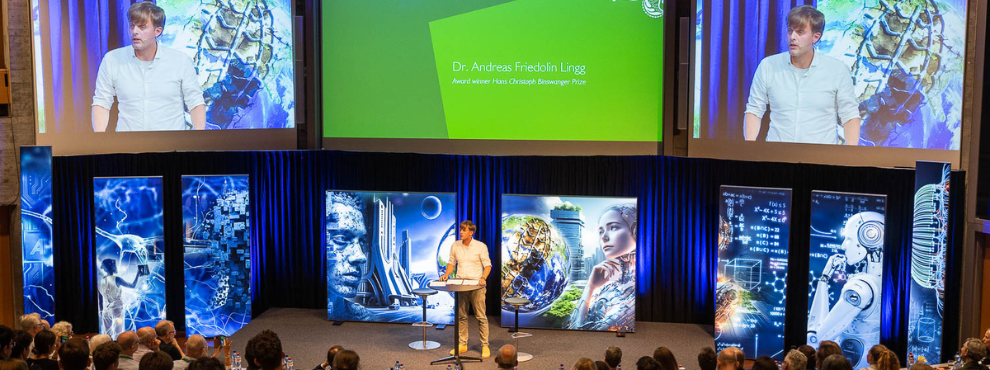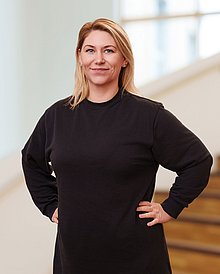Hans Christoph Binswanger Prize 2023 goes to Dr Andreas Lingg
This year's Hans Christoph Binswanger Prize was awarded at the international symposium "Universities in the Age of Uncertainty". The winner is Dr Andreas Lingg from UW/H.

Every two years, the University of St.Gallen (HSG) awards the Hans Christoph Binswanger Prize to junior researchers from the social sciences and humanities. The 2023 winner is Dr Andreas Lingg. He was honoured for his research work, which was published as a book entitled "Die Entdeckung der Wirtschaft" by Wallstein Verlag. In it, he explores the history of silver mining in the Ore Mountains and shows how this fundamentally revolutionised the economics of the Middle Ages, paving the way for a modern capitalist economic order. Andreas Lingg is an academic staff member at the WittenLab. Zukunftslabor Studium fundamentale and founder and project manager of the academic teaching and research platform sieben:viertel at Witten/Herdecke University (UW/H).
"Andreas Lingg is a very talented researcher, and we hope that the Binswanger Prize will help to ensure that his work receives the attention it deserves," explained jury member Prof Dr Martin Kolmar in his laudatory speech. His book not only fits in very well with the aims of the Binswanger Prize in terms of subject matter, but is also close in spirit to Hans Christoph Binswanger's ideas on how the economy should be run.
How silver mining fundamentally revolutionised the economy of the Middle Ages
However, the economist and business ethics expert admitted that he was sceptical at the beginning. "Why should I be interested in silver mining in Saxony in the 13th century?" was his initial reaction. However, his examination of the subject matter quickly proved him wrong. In his book, the author vividly demonstrates how silver mining in Saxony from the 13th century onwards made a significant contribution to fundamentally revolutionising the economy of the Middle Ages and thus paving the way for modern capitalist society.
Why is this important? Back then, it was necessary to develop innovative ways of thinking and fundamentally rethink the world view. The same applies today, says Kolmar: "Today we are once again on a threshold. Our old ways of thinking have led us to the brink of an ecological catastrophe. Perhaps it is time to rethink our way of being, our relationship to what we might call nature, the epistemological and ontological assumptions on which we base our understanding of the world and our role in it. To rethink capitalism. This is possible because it has been done before."
Photos for download
Contact person

Svenja Malessa
Press Officer
Administration | Communication & Marketing
Alfred-Herrhausen-Straße 48
58455 Witten
Room number: 2.F05

